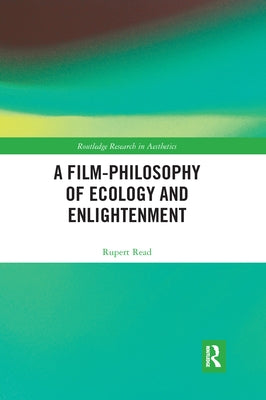Description
Inspired by the philosophy of Wittgenstein and his idea that the purpose of real philosophical thinking is not to discover something new, but to show in a strikingly different light what is already there, this book provides philosophical readings of a number of 'arthouse' and Hollywood films. Each chapter contains a discussion of two films--one explored in greater detail and the other analyzed as a minor key which reveals the possibility for the book's ideas to be applied across different films, registers, and genres. The readings are not only interpretive, but they offer a way of thinking and feeling about, with, and through films which is genuinely transformative. Rupert Read's main contention is that certain films can bring about a change in how we see the world. He advocates an ecological approach to film-philosophy analysis, arguing that film can re-shape the viewer's relationship to the environment and other living beings. The transformative 'wake-up call' of these films is enlightenment in its true sense. The result is a book that ambitiously aims to change, though film, how we think of ourselves and our place in the world, at a time when such change is more needed than ever before.
Author: Rupert Read
Publisher: Routledge
Published: 09/30/2020
Pages: 244
Binding Type: Paperback
Weight: 0.74lbs
Size: 9.00h x 6.00w x 0.52d
ISBN13: 9780367664916
ISBN10: 0367664917
BISAC Categories:
- Art | Film & Video
- Philosophy | Aesthetics
- Performing Arts | Film | History & Criticism
About the Author
Rupert Read is Reader in Philosophy at the University of East Anglia, UK. He is a renowned Wittgensteinian scholar, with research interests in political and environmental philosophy. His published monographs to date are Kuhn (co-authored, 2002), Applying Wittgenstein (2007), Philosophy for Life (2007), There is No Such Thing as a Social Science (2008), Wittgenstein Among the Sciences (2012), and A Wittgensteinian Way with Paradoxes (2012). His editorial experience includes The New Hume Debate (co-edited, 2000), Film as Philosophy: Essays on Cinema after Wittgenstein and Cavell (2005), and the work for which he is perhaps still best known, The New Wittgenstein (Routledge, 2000), which offers a major re-evaluation of Wittgenstein's thinking.
This title is not returnable

